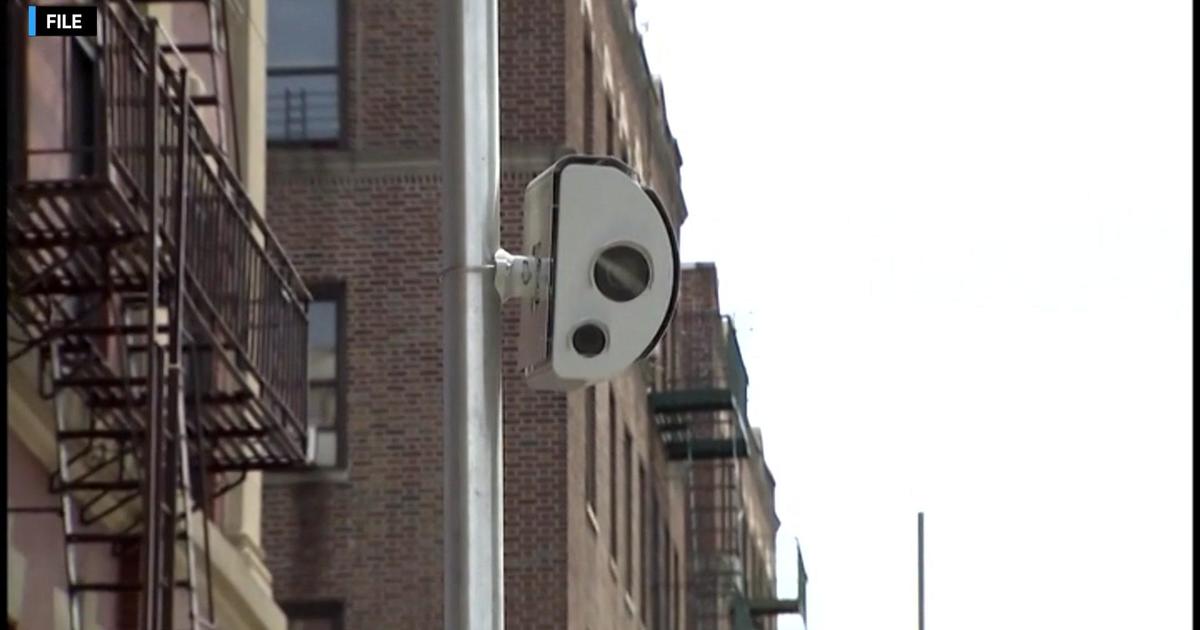New Deal Hopes To Avoid State Worker Layoffs In Connecticut
HARTFORD, CT (AP / WCBS 880) - Connecticut state employee union leaders agreed Monday to change their rules for ratifying a labor savings and concessions agreement, reviving hopes that thousands of layoffs and deep budget cuts can be stopped.
WCBS 880 Connecticut Bureau Chief Fran Schneidau On The Story
Podcast
Shortly after the State Employees Bargaining Agent Coalition voted to change their bylaws, Gov. Dannel P. Malloy announced that his chief labor negotiator will meet with the leaders over the next few days to discuss what issues in the now-defunct deal that was defeated last month by rank-and-file members "need to be clarified.'' Malloy has said he will not renegotiate a new agreement.
"Given the limited number of issues that have been identified as problematic, it shouldn't take more than a couple of days to have a clarified agreement that's ready to be voted on by all state employees,'' Malloy said in a written statement. No date has been set for a vote.
Under the new bylaws, eight of the 15 SEBAC unions will now be needed to ratify an agreement, which would change a 20-year health and retirement contract that isn't set to expire until 2017. Their membership also must represent a majority of the union workers. The prior bylaws required 14 of the 15 unions to agree to the changes. Ultimately, the vote was 11-4, two more than needed to defeat the agreement, which had promised four years of no layoffs. Fifty-seven percent of those who cast ballots voted in favor of the deal.
Malloy and the General Assembly had relied on the savings agreement to balance the two-year, $40.1 billion budget. The labor deal was supposed to save $1.6 billion over two years. But without those savings in place, Malloy has begun eliminating more than 6,560 jobs, including thousands of layoffs, and closing or scaling back state programs.
While he has urged SEBAC to come up with a way to change their ratification process and somehow get a concessions agreement approved, Matt O'Connor, a SEBAC spokesman, stressed that Malloy was not behind the decision to change the bylaws.
"We didn't give the governor anything,'' O'Connor said. "This was a decision made by union leaders based on reviewing the entire ratification process, hearing from the 45,000 members of our unions, applying lessons learned from this experience and following some very basic principles of union democracy. It certainly wasn't about the governor.''
Malloy submitted a budget-balancing plan to the General Assembly on Friday that affects many aspects of state government. It includes fewer Department of Motor Vehicles branches, state troopers patrolling the highway and state prisons, as well as cutbacks in state services for the elderly, disabled and people with addictions, higher rail and bus fares, and the end to two ferry services.
The Judicial Branch has proposed closing courthouses and laying off court clerks, judicial marshals and probation officers.
Leo Canty, a SEBAC spokesman, said union leaders' goal is to make sure all their members who've received layoff notices will ultimately keep their jobs. But he acknowledged it could be difficult to save all the jobs because the new fiscal year has already begun and those lost savings will have to be made up elsewhere.
"You just have to understand that as the clock ticks, it becomes a variable. It becomes a complexity at the table that we have to deal with,'' he said. "I am not going to predict what the outcome is. We're going to work real hard and fight hard to get everybody back into their jobs.''
O'Connor said the first deal reached with Malloy promised no layoffs for four years and he said there's "no reason to expect we wouldn't have the same principle'' in any revised agreement they present to union members.
Union leaders and Malloy are under strict time constraints. O'Connor said hundreds of workers received layoff notifications last week and were told their jobs would be eliminated in two weeks. He called it "a real challenge'' to come up with a plan to save those employees' positions.
"Time is not on our side. The clock has stopped ticking, in fact,'' he said. "We've got to move fast.''
Many issues still need to be worked out in the coming days. For example, the union spokesmen said it remains to be seen whether a contentious health insurance savings program, which requires participants to receive annual physicals and other age-appropriate tests, will become part of the final deal.
It's also unclear whether workers will have to give up new pay raises that officially kicked in as of July 1 because the wage freezes in the original agreement were not approved.
Charlene Bell, a 15-year veteran employee at the Southbury Training School who voted in favor of the first agreement but received a layoff notice, is optimistic that a second vote could be the charm.
"I think that we have to do better explaining the contract to people and answer the questions that most of the members have,'' she said. "And I'm very confident that it will pass this time, once it's explained all the questions are answered.''
Canty said much has changed since employees first voted on the agreement.
"We have layoff notices. A lot of those are real. The cutbacks in services are real. The impact, the negative, terrible impact on the state is becoming real,'' he said. "I think now people are paying a little bit more attention.''
(TM and Copyright 2011 CBS Radio Inc. and its relevant subsidiaries. CBS RADIO and EYE Logo TM and Copyright 2011 CBS Broadcasting Inc. Used under license. All Rights Reserved. This material may not be published, broadcast, rewritten, or redistributed. The Associated Press contributed to this report.)



